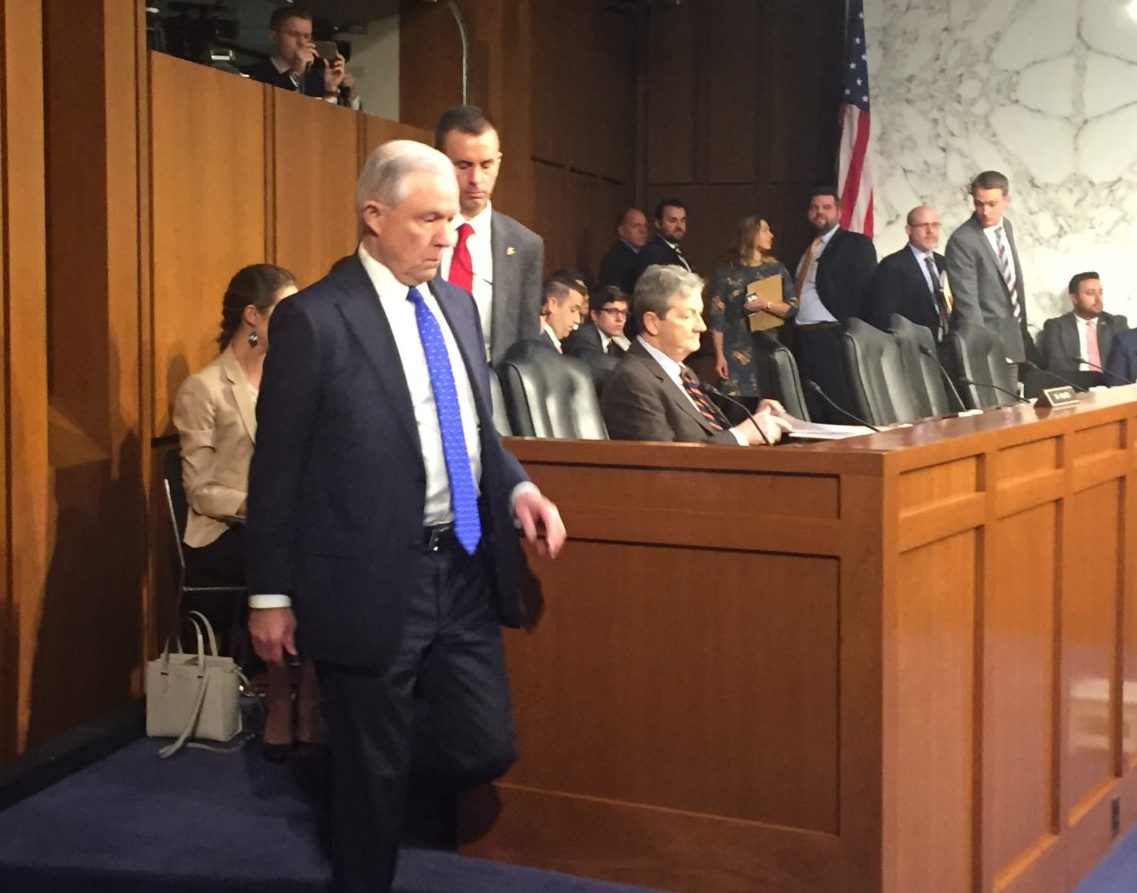Wednesday, October 18th 2017 (WASHINGTON) – Republican and Democratic senators voiced concerns over the Trump administration’s plans to withdraw federal law enforcement grants from sanctuary cities that refuse to comply with immigration enforcement orders.
During a Wednesday hearing before the Senate Judiciary Committee, Attorney General Jeff Sessions defended President Trump’s controversial executive order on sanctuary cities against critics who he said were “advancing political agendas” rather than “following the law.”
Sen. Dick Durbin (D-Ill.) and Sen. John Kennedy (R-La.) represent two major sanctuary cities, Chicago and New Orleans, where local officials continue to openly refuse cooperation with Immigration and Customs Enforcement (ICE). Both senators warned that withdrawing federal grants for law enforcement will undercut their ability to fight crime.
“Mr. Attorney General, you’re not helping us solve the murder problem in the city of Chicago by taking away these federal funds,” Durbin said. “You want to cut off federal funds to that city and come here and criticize the murder rate. You can’t have it both ways.”
Chicago leads the nation in the number of homicides, with 762 people killed in 2016, a 58 percent increase from the previous year. The Trump administration has often focused on Chicago’s violent crime rate in discussing efforts to reverse the recent two-year trend in rising violent crime across the country.
Sessions asked Durbin, “How does that make the city of Chicago safer when you don’t remove criminals that are illegally in the country?”
The superintendent of the Chicago Police has previously denied a connection between the city’s sanctuary policies and violent crime, saying that “undocumented immigrants are not driving violence in Chicago.”
Critics of the sanctuary cities executive order claim that it is an effort to turn local police into a federal deportation force. Sessions described ICE detainers as requests for information and cooperation issued for individuals who have already been arrested for committing a crime.
“It’s amazing to me that some of the mayors are so reluctant and so hostile to that simple request,” Sessions said. “And I don’t think it’s my duty to give out grants to cities who are failing in the most fundamental relationship between two federal-state jurisdictions.”
Chicago Mayor Rahm Emanuel challenged the Trump executive order in court along with mayors from more than 30 other cities, including New Orleans Mayor Mitch Landrieu. The San Francisco District Court struck down portions of the executive order in April saying the administration could not threaten to withhold federal fund. The administration appealed the ruling last month.
Sen. Kennedy, an ally of Donald Trump, stressed that the Byrne Justice Assistance Grants are “very important to New Orleans to help us fight crime,” and pleaded with the attorney general to sit down and resolve the issue of the city’s compliance with federal immigration law.
Last week, the Justice Department sent Landrieu a letter giving the city a “last chance” to comply with immigration law and coordinate with ICE.
Landrieu replied that the city was in “full compliance” with federal law and said local police “will not be the federal government’s deportation force.”
New Orleans has until October 27 to prove it is in full compliance with the law requiring local authorities to communicate with federal immigration enforcement when they inquire about a detained individual’s immigration status.
Since Trump took office, about half of the cities listed as violating federal immigration law have come into compliance, according to Sessions. He said he would “love to see New Orleans get off the list. But we’re not there yet.”
The attorney general urged a strengthening of the law ( 8 U.S.C. § 1373) that prevents jurisdictions from shielding illegal immigrants charged with crimes.






